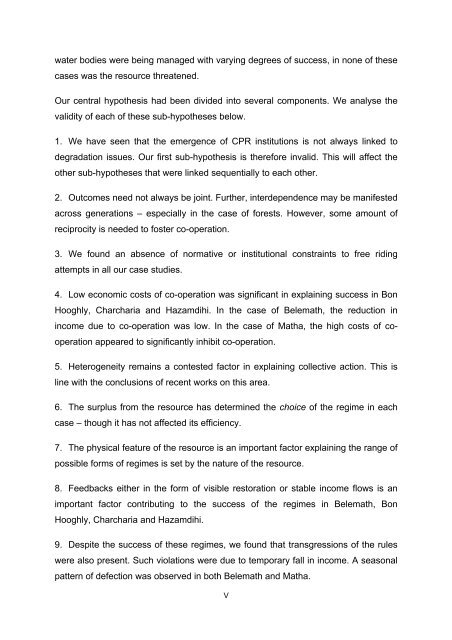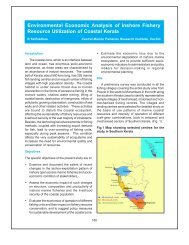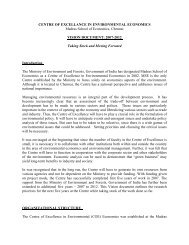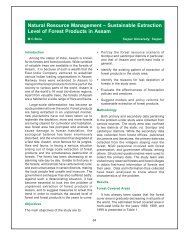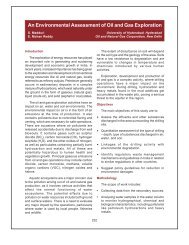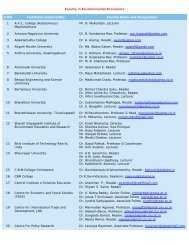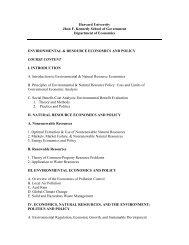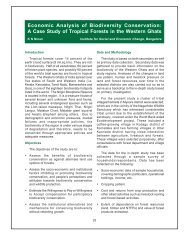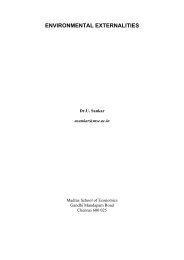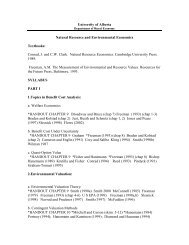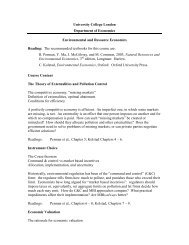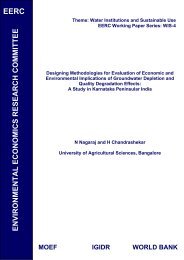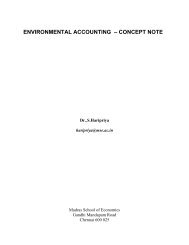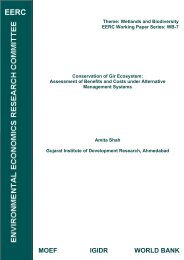PDF 3.08 MB
PDF 3.08 MB
PDF 3.08 MB
Create successful ePaper yourself
Turn your PDF publications into a flip-book with our unique Google optimized e-Paper software.
water bodies were being managed with varying degrees of success, in none of these<br />
cases was the resource threatened.<br />
Our central hypothesis had been divided into several components. We analyse the<br />
validity of each of these sub-hypotheses below.<br />
1. We have seen that the emergence of CPR institutions is not always linked to<br />
degradation issues. Our first sub-hypothesis is therefore invalid. This will affect the<br />
other sub-hypotheses that were linked sequentially to each other.<br />
2. Outcomes need not always be joint. Further, interdependence may be manifested<br />
across generations – especially in the case of forests. However, some amount of<br />
reciprocity is needed to foster co-operation.<br />
3. We found an absence of normative or institutional constraints to free riding<br />
attempts in all our case studies.<br />
4. Low economic costs of co-operation was significant in explaining success in Bon<br />
Hooghly, Charcharia and Hazamdihi. In the case of Belemath, the reduction in<br />
income due to co-operation was low. In the case of Matha, the high costs of co-<br />
operation appeared to significantly inhibit co-operation.<br />
5. Heterogeneity remains a contested factor in explaining collective action. This is<br />
line with the conclusions of recent works on this area.<br />
6. The surplus from the resource has determined the choice of the regime in each<br />
case – though it has not affected its efficiency.<br />
7. The physical feature of the resource is an important factor explaining the range of<br />
possible forms of regimes is set by the nature of the resource.<br />
8. Feedbacks either in the form of visible restoration or stable income flows is an<br />
important factor contributing to the success of the regimes in Belemath, Bon<br />
Hooghly, Charcharia and Hazamdihi.<br />
9. Despite the success of these regimes, we found that transgressions of the rules<br />
were also present. Such violations were due to temporary fall in income. A seasonal<br />
pattern of defection was observed in both Belemath and Matha.<br />
V


